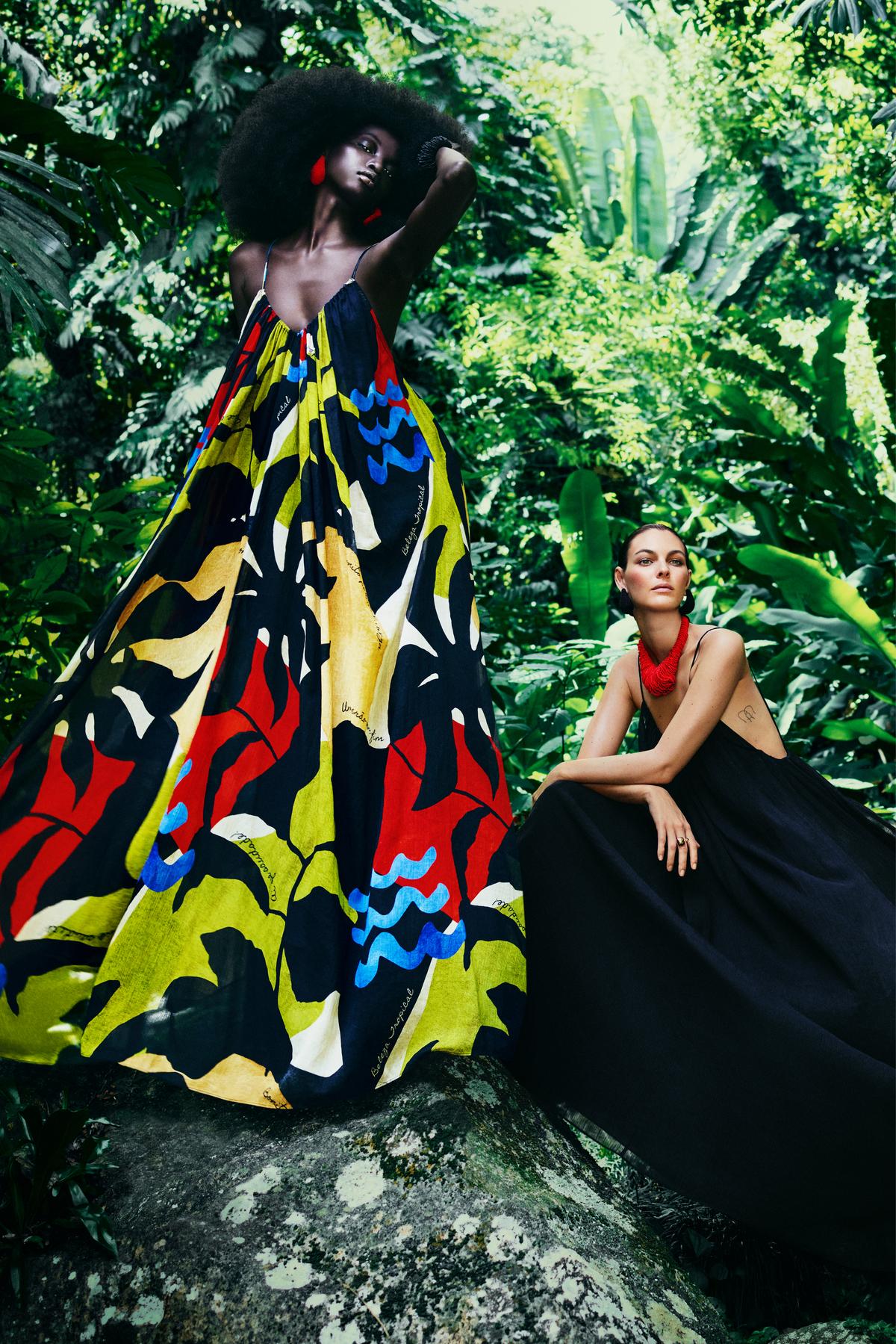From stables to the power corridors of fashion, Ann-Sofie Johansson, H&M’s head of Womenswear Design, has had quite a journey. Growing up in Sweden, she says she was always in the stables, taking care of horses and going on rides. “I wanted to become a vet but I didn’t have the grades for that,” she laughs, adding, “At the same time, I was also interested in fashion. I drew a lot of sketches, did a lot of designs. My mom was a seamstress and stitched them for me.”
There are kaftans, sun dresses and matching sets inspired by the warmth, energy and rich culture of Brazil
In 1987, 25-year-old Ann began her career with H&M as a salesperson at a store in Stockholm. Sure there were other brands she could have joined but H&M for her was “this magical place” where she always found everything sartorial she was looking for. “They could read my mind. I thought, being a designer at H&M must be the most amazing thing,” she says. So, she joined evening classes in design and pattern making. Eventually, Ann put together a portfolio and bravely sent it to the then head of Design, Margareta van den Bosch. And soon, she started off as designer assistant.
Ann-Sofie Johansson, head of Womenswear Design and creative advisor
Ann’s association with H&M spans 37 years. She is also thecreative advisor. “I am growing with the company. Back then the brand was present in six countries — Sweden, Denmark, Norway, Germany, the UK, and Holland. But now, it is in 70-plus markets,” she adds over a video call from Delhi; she visited the capital as part of her global inspiration trip.
In the last three decades she has seen a lot of change and been part of it as well. “Fashion is more fun today, also more challenging. When I started it was dictated by the fashion runways of Paris, for example, and there was just one trend. Today, there is so much fashion and so many trends. Nothing is right or wrong. It’s all about expressing and communicating through fashion and mixing styles and looks. As a result, it’s more liberating.”
Ann believes that, in general, fashion reflects what is going on in the world. Which brings us to the question of sustainability, landfills, and how a fast fashion band like H&M is faring on that front. “H&M is not a fast fashion brand,” she insists, while pointing out that sustainability is an endeavour that H&M embarked on 25 years ago.
“It’s a big subject. It’s incorporated in business ideas, fashion, quality, price, all through our value chain. We also look at how to cut garments in a better way, how to store, what sustainable fabrics (they use cotton, organic and recycled cotton, recycled fabrics, sustainable wool) can be used or are there recycled fabrics that we can use, how to produce them, how to transport them (a lot of the clothes are made in China, India, Turkey and Bangladesh), how can we inspire customers to care for the garments so they last long and can be reused,” she says adding that there are tough goals ahead and while they are working towards them, this is an issue that cannot be solved individually and requires collaboration with other fashion companies.
Circularity in fashion is important. This means not just how a garment is created but also how it is broken down and recycled is crucial, she says. Brands need to invest time in the product so it is long lasting and can be reused, reused, and reused, the 61-year-old further adds.
And given how trends keep coming back, this maybe a great idea. Over the years, Ann says she has seen styles come back but in a new context. The Y2K trend with its crop tops, low waist denims, the grunginess of the 90s — like the Kurt Cobain grunge look — are all back.
While Ann has tried every single trend in the book, the Swedish fashion designer says she will never wear hot pants and leotards. “I am completely over that,” she laughs. She is more pragmatic in her choices now. Her style is a little tomboyish. “I buy a lot of menswear — slouchy trousers, shirts — and add jewellery and big rings for that extra touch,” she says. Like most people, she has also got used to comfort after the pandemic.
Meanwhile Ann and her team of 300 designers are putting on their fashion forward caps for the upcoming season with collections that aim to make the wearer look and feel good. “We work far ahead and are already starting to look at Autumn ‘25. We have special collections for H&M Studio (clothes made of high-end fabric, higher price bracket, and limited collection) and will be doing something for Paris Fashion Week.”
month
Please support quality journalism.
Please support quality journalism.








:max_bytes(150000):strip_icc()/roundup-writereditor-loved-deals-tout-f5de51f85de145b2b1eb99cdb7b6cb84.jpg)


